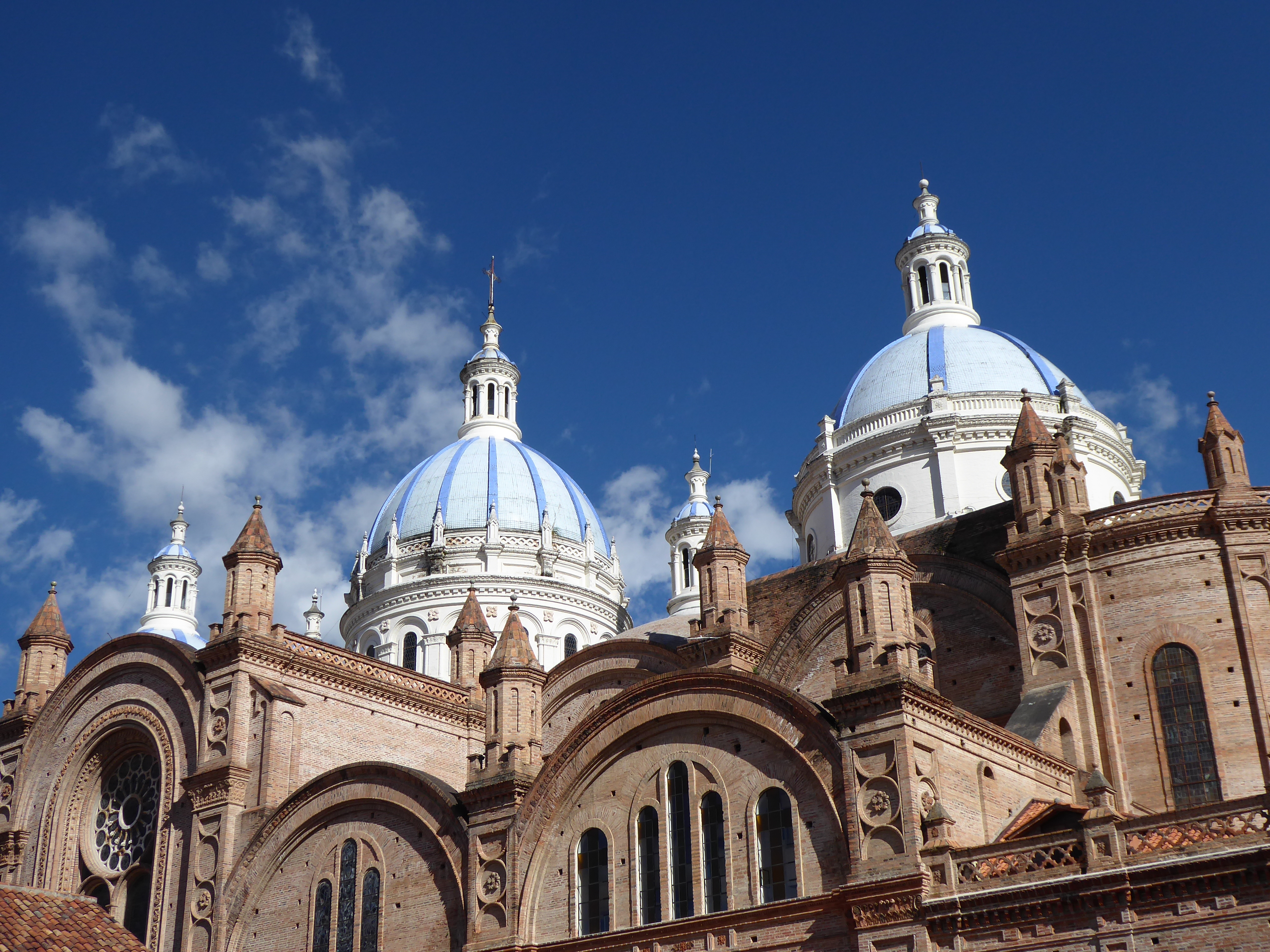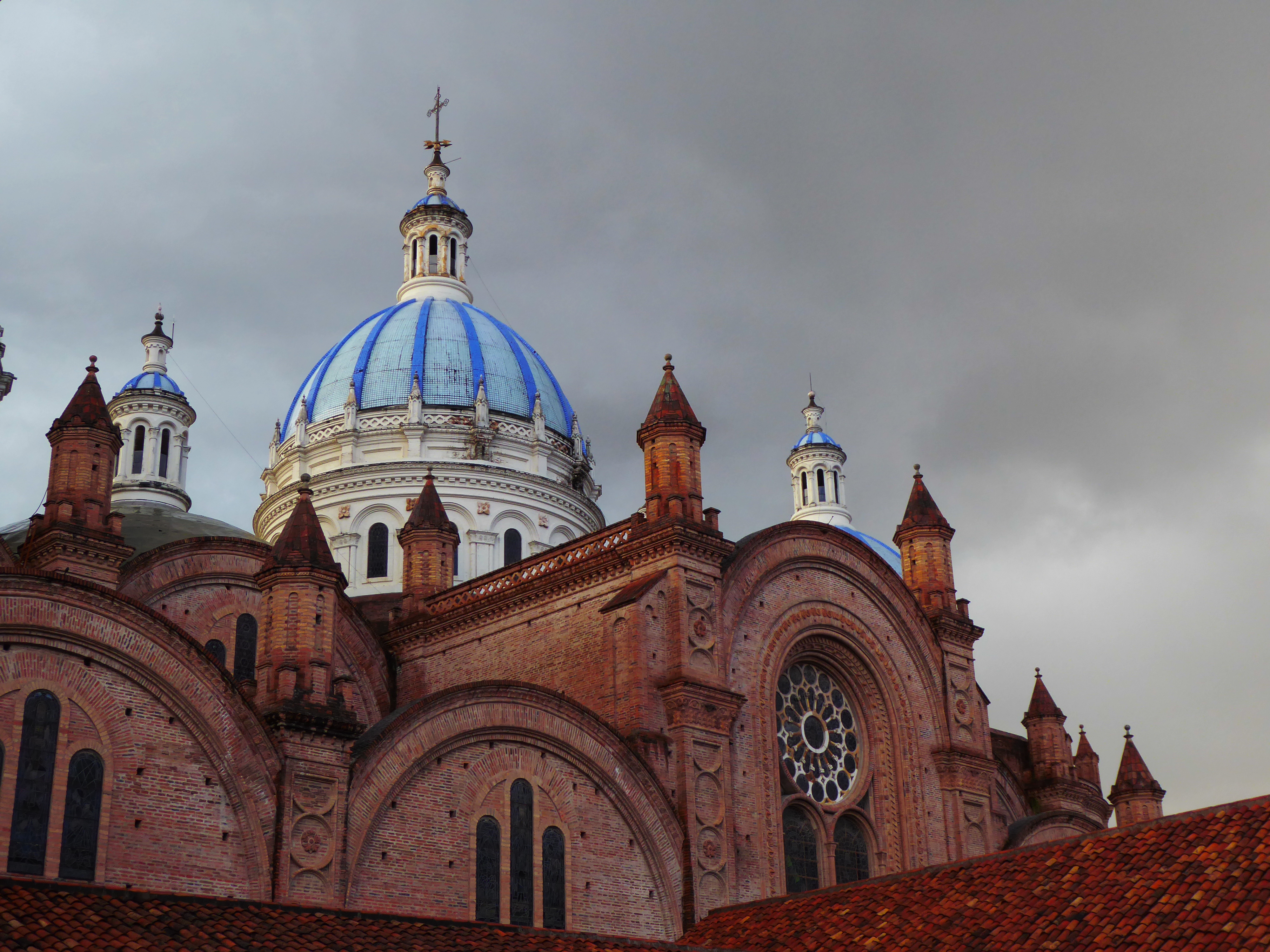 I decided to make Cuenca my last full stop in Ecuador. My three-month visa was running out and I only heard wonderful things about this city. I had reserved a night at a hostal (a small hotel not to be confused with a hostel) made up of studio apts, but upon arrival found it too cold both aesthetically and physically so I spent that afternoon looking for another place to settle in for the week.
I decided to make Cuenca my last full stop in Ecuador. My three-month visa was running out and I only heard wonderful things about this city. I had reserved a night at a hostal (a small hotel not to be confused with a hostel) made up of studio apts, but upon arrival found it too cold both aesthetically and physically so I spent that afternoon looking for another place to settle in for the week.
I found a lovely converted colonial house-yes, another one- to call home. The room cozy and warm overlooked an interior courtyard. One afternoon I was guided through the garden in the back by the long time housekeeper Teresa. 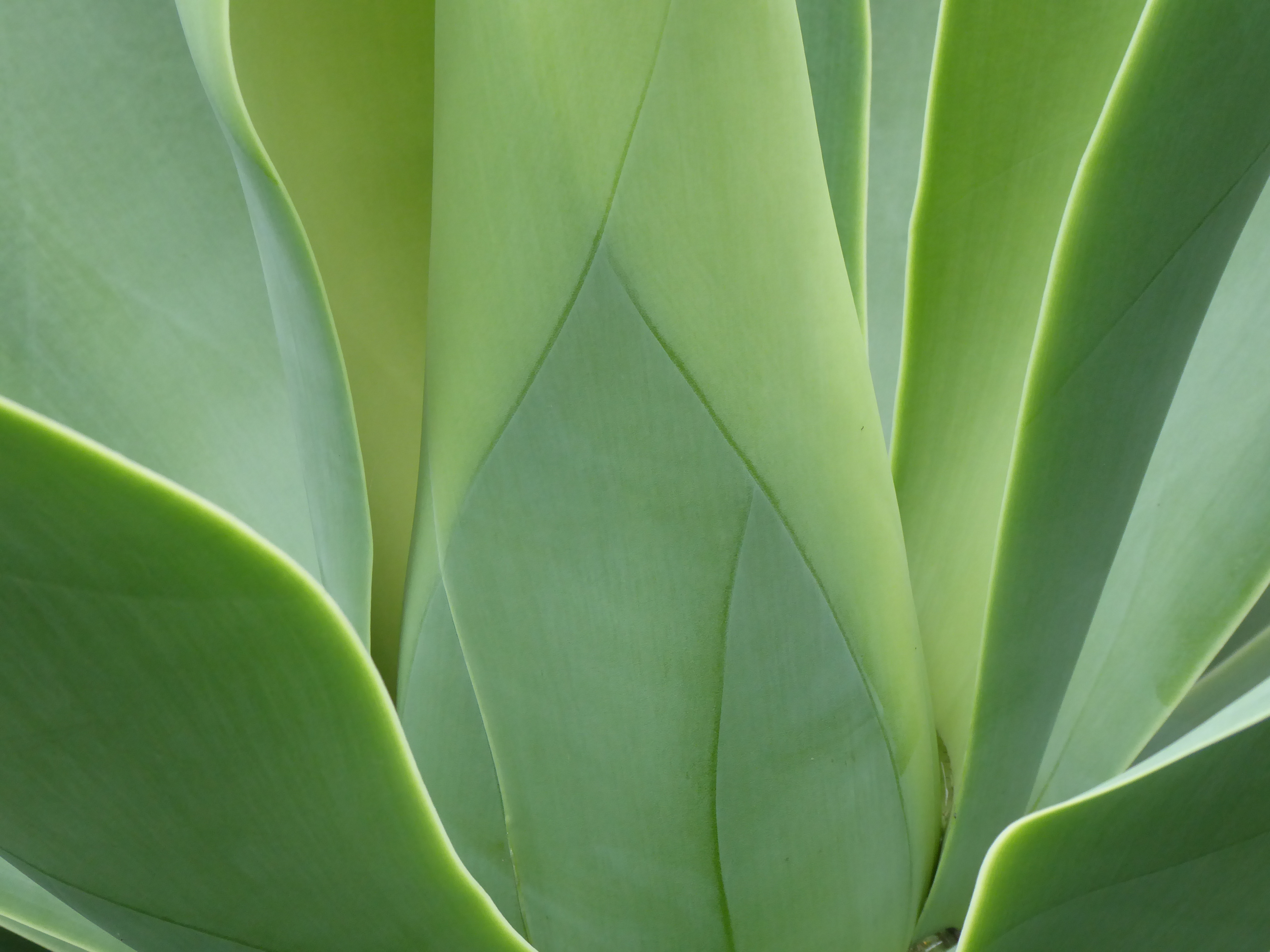 There were papaya, fig, avocado trees and so much more. Caged parakeets sang in the discordant way they do while the free birds fluttered around singing harmoniously. Sonia, the hostal owner’s mother, lived next door. Now in her eighties and recently widowed she had time to show me old photographs, heirlooms and her immaculate three story home. She spoke of a time that women stayed home with their children-she had eight. When I inquired if she might have liked to have a career- her daughters were lawyers. She said it had never occurred to her. “In those days children were not left alone to grow up to be criminals.”
There were papaya, fig, avocado trees and so much more. Caged parakeets sang in the discordant way they do while the free birds fluttered around singing harmoniously. Sonia, the hostal owner’s mother, lived next door. Now in her eighties and recently widowed she had time to show me old photographs, heirlooms and her immaculate three story home. She spoke of a time that women stayed home with their children-she had eight. When I inquired if she might have liked to have a career- her daughters were lawyers. She said it had never occurred to her. “In those days children were not left alone to grow up to be criminals.”
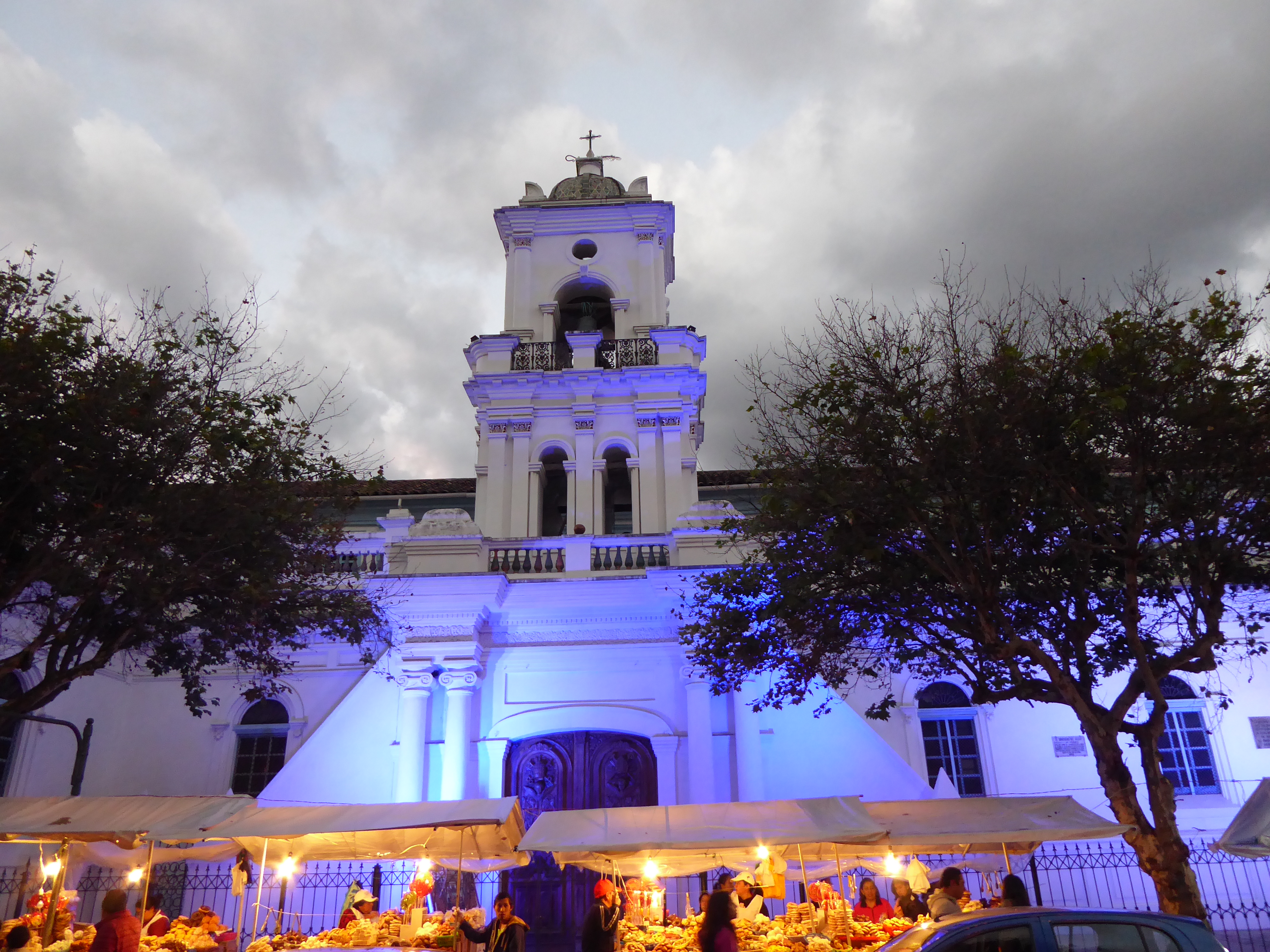 The center of Cuenca was animated, but pleasant and having arrived at the beginning of the Corpus Christi festivities, I saw one stall after another line the streets overflowing with baked goods and candies. Women wearing white aprons and caps worked the stalls and most seemed to have sampled a fair share of their goods. Nighttime would bring food stalls and fireworks.
The center of Cuenca was animated, but pleasant and having arrived at the beginning of the Corpus Christi festivities, I saw one stall after another line the streets overflowing with baked goods and candies. Women wearing white aprons and caps worked the stalls and most seemed to have sampled a fair share of their goods. Nighttime would bring food stalls and fireworks.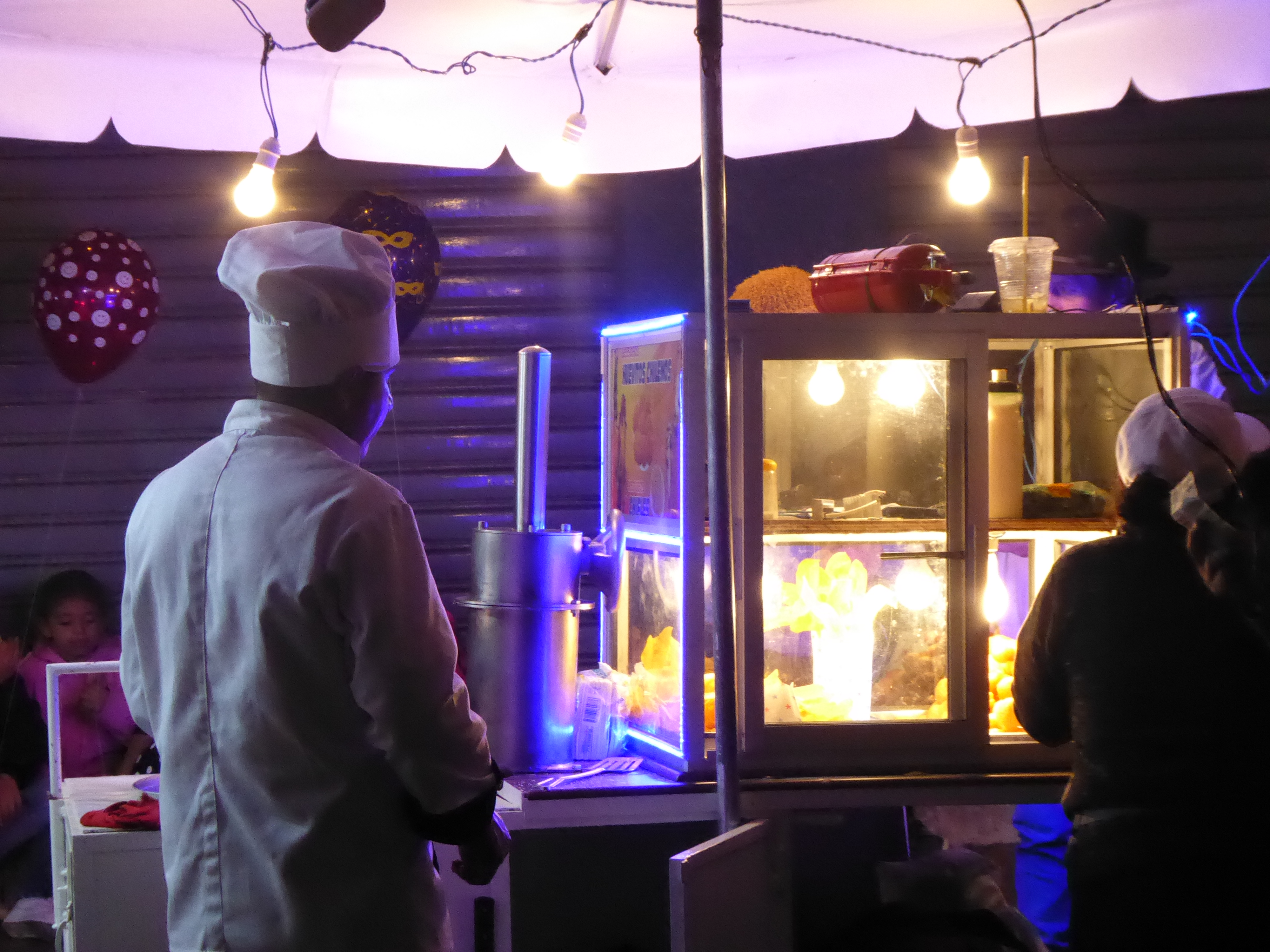
The main church with its stunning blue domes was the center of the activities, but the other churches-picturesque and seemingly on every block- were engaged too.
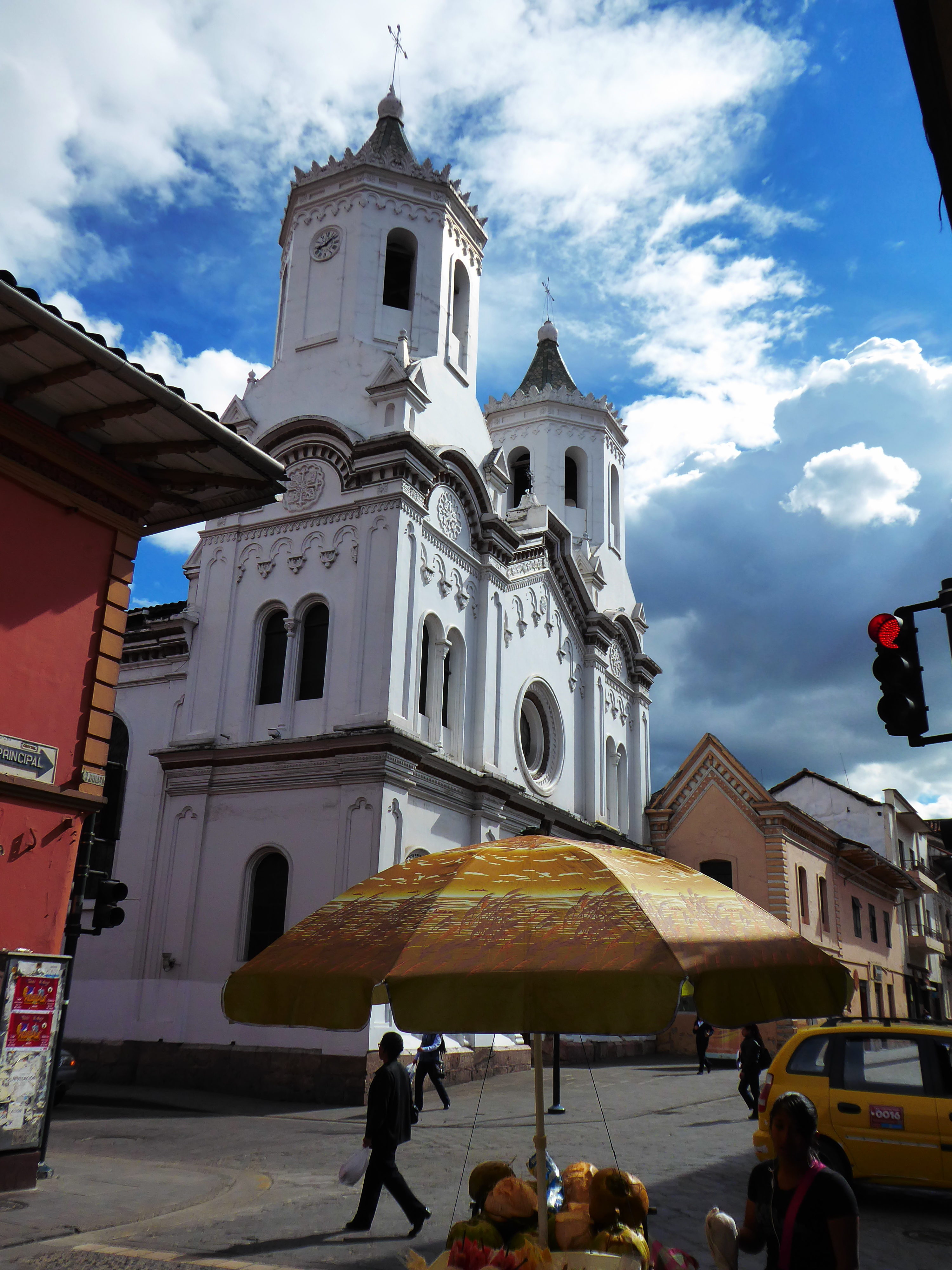
There is a large expat community in Cuenca. Quality of life is high and prices are low-although not as low as in other parts of the country. A fair percentage of these foreigners, many Americans, get by without learning Spanish adhering to the gringo establishments and social circles. From what I could tell the two worlds coexist amicably. For me it was nice to meander from the local market and shops to an upscale restaurant for lunch or enjoy the terrace of a Belgian bistro for a beer.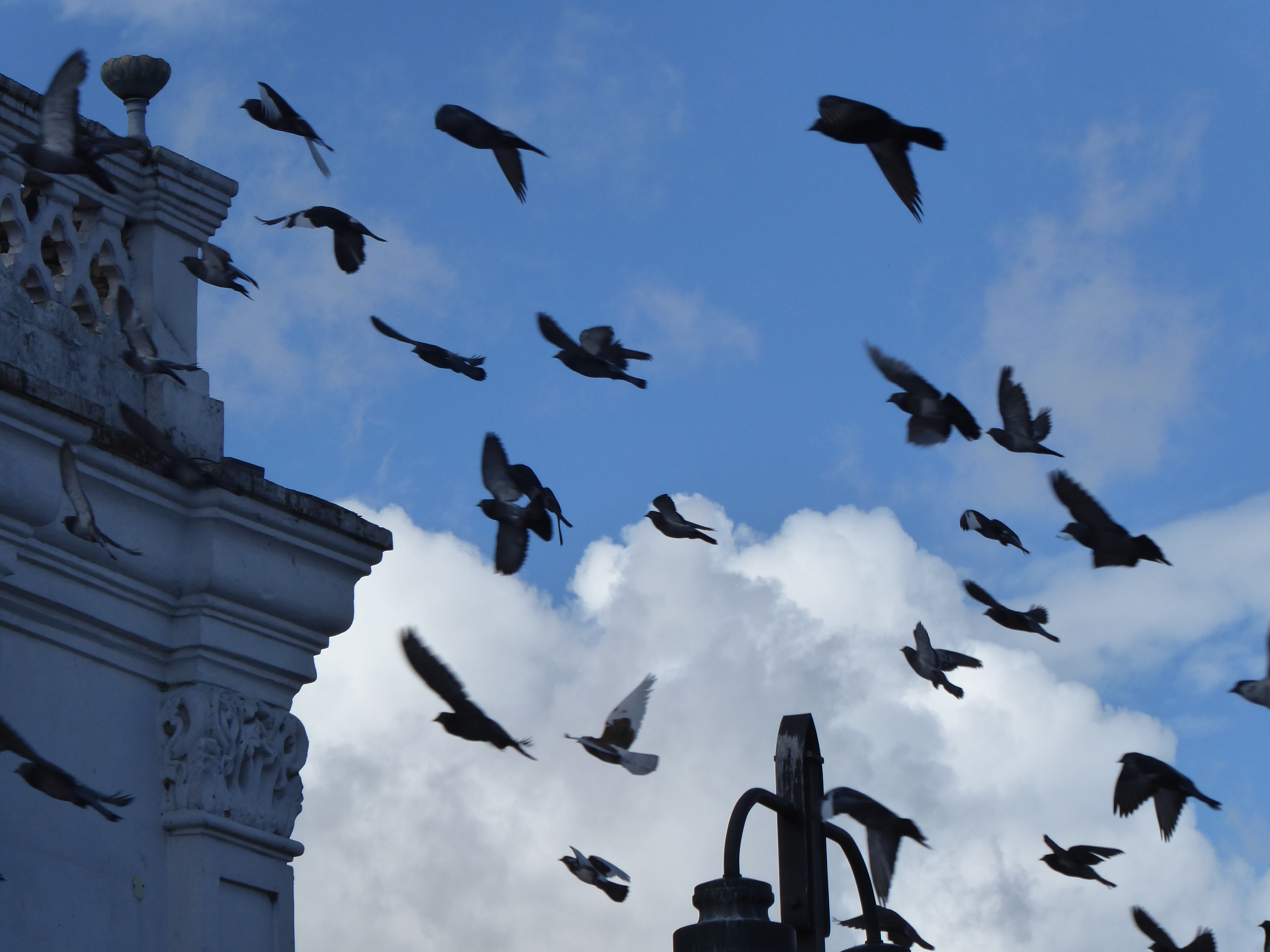
Wandering into the sparse Modern Art Museum, I met Robert an exuberant New York born, California based, singer. He was working on a Frank Sinatra tribute incorporating the talents of the neighborhood children. He had engaging anecdotes of Bob Dylan, David Bowie-once removed-and direct contact with Woody Allen and Keith Haring. He was chatting with Patricia from Cuenca who worked at the museum and soon we were all conversing like old friends. Patricia introduced me to the director of a Spanish language school where I worked with Monica, an enthusiastic and kind teacher, reviewing verb tenses and conjugations for four days.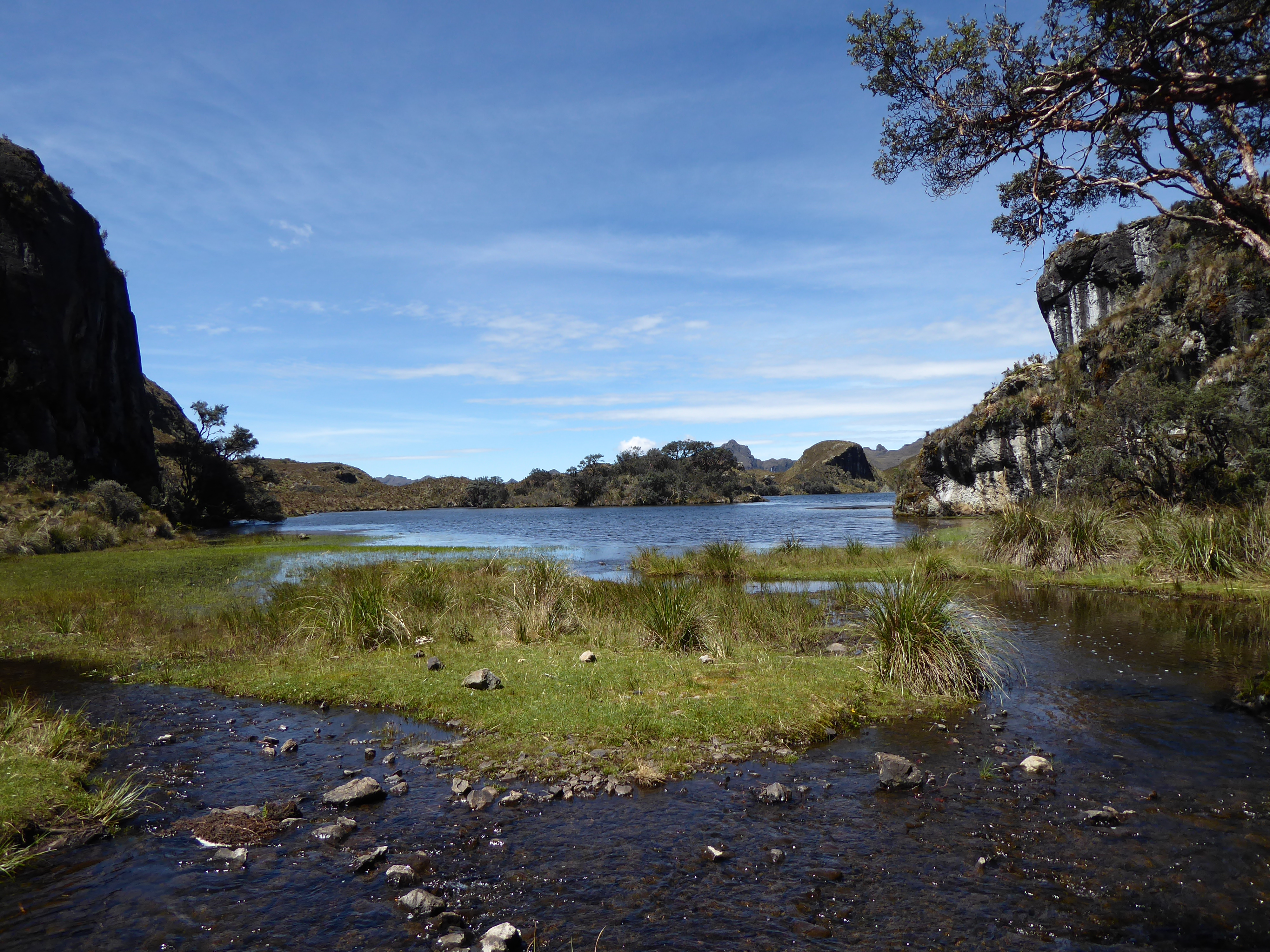
I found time to visit a tiny portion of El Cajas, a gorgeous national park with pristine lakes and landscape thirty minutes from town. Waiting for the bus, a vendor of homemade coconut sweets asked me where I was from. After sharing a few moments of our time he kindly offered me three of his sweets- I accepted one. It was delicious. He soon boarded the next bus to hawk his goods.
Getting to the park required taking one bus then another, but I wasn’t sure where to make the change. My inquiries on the first bus was overheard by a man getting off where I needed to. He offered to assist me. Moments later he signaled for me to get off and we descended. A bus was approaching. He whistled and the bus stopped. He walked away and I hopped aboard.
I noticed sitting across from me a deaf man speaking to his companion with his hands. He asked his friend to close the window with the universal gesture that he was cold. Our eyes met and soon he and I were conversing too. He showed me where it was good to fish and that the fish were good to eat. That we’d be arriving soon and that it was a great place to hike, although there were hills, and to take lots of photos. When I arrived we said our good byes. All without saying a word.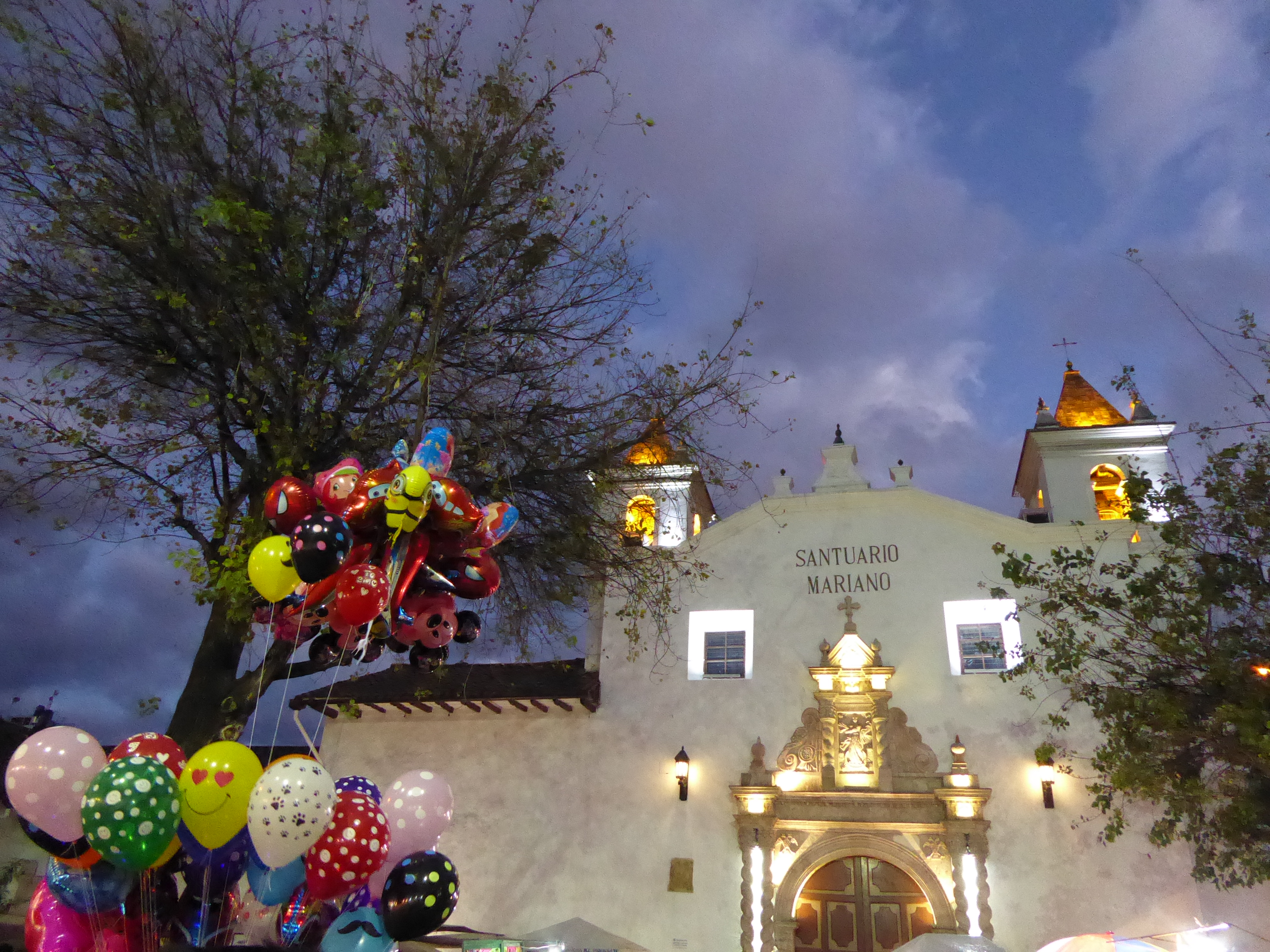
I met Valentin who was from Ecuador but had been living in the US the past thirty years. He made and sold “Panama” hats: the stylish head toppers from Ecuador made from straw. They can be exquisite works of art. He was visiting his old friend Sonia, the hostal owner-named after her mother. He showed me his hat made from beaver fur mixed with just the right percentage of rabbit fur-it looked like neither. It was stunning. His market was hats of high quality that sold for thousands of dollars. His clients were Texas oil men and celebrities.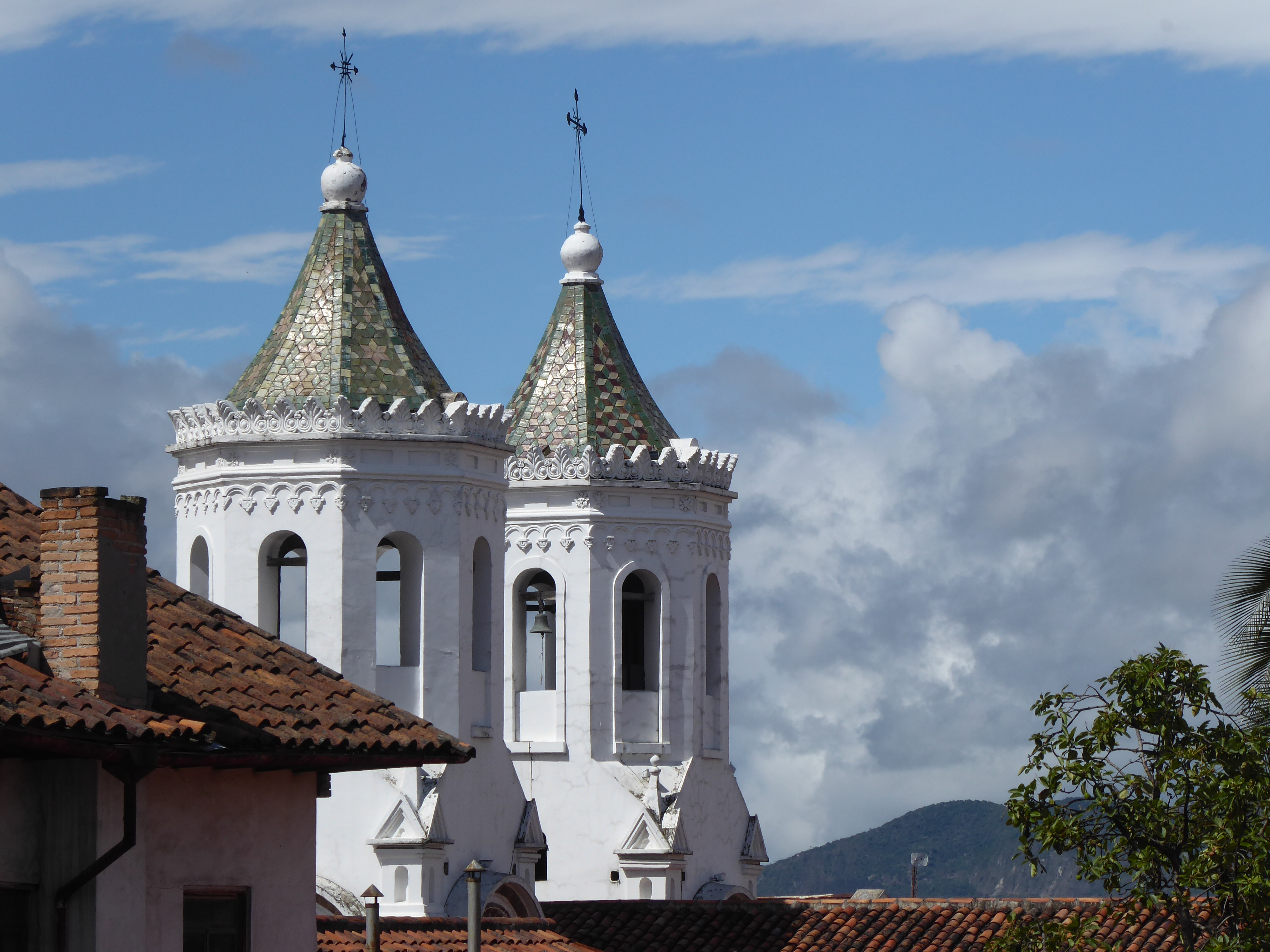 I enjoyed my time in Cuenca, but it was time to move on.
I enjoyed my time in Cuenca, but it was time to move on.
I booked a flight back to Quito-forty-five minutes-instead of the twelve hour bus ride.